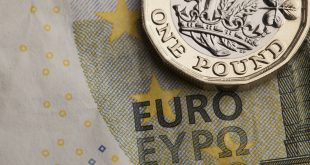The Yen and the Swiss Franc were among the top performers due to risk aversion and the retreat in government bond yields. The Japanese Yen finished marginally higher above 145.00, while the Swiss Franc gained for the fifth consecutive week.
The Pound was the biggest gainer, supported by UK economic data. Retail Sales on Friday weakened the currency, while GBP/USD ended a four-week negative streak and remained above the 20-week SMA and 1.2600. USD/CAD rose above 1.3500, hitting the highest level since May. The Antipodean currencies were the worst performers, influenced by the Chinese outlook and commodity price decline.
The US Dollar Index increased for the sixth week in a row, helped by positive US economic statistics, a lack of enthusiasm for taking risks, and rising Treasury yields. It last had a run of that length in May 2022. The DXY reached its highest point since June after closing above 103.00. The US will release data on housing, unemployment claims, and durable goods orders the following week.
Despite market forecasts that the Fed won’t raise interest rates at the September meeting, US Treasury yields increased during the week, with the 10-year finishing at 4.20%, the highest weekly close since 2007.
The Reserve Bank of Australia and the Reserve Bank of New Zealand are currently on pause, and despite some hawkish signs, they are not expected to resume the tightening cycle. The Australian Dollar was the worst among major currencies, with employment data below expectations.
Cryptocurrencies dipped due to global concerns, with Bitcoin experiencing its worst week in three months, gold falling below $1,900, and silver showing signs of stabilization around $22.70.
What are markets watching attentively?
At the Jackson Hole Symposium, central bankers, mainly Fed Chair Powell, will speak. As the market searches for direction, prominent central bankers’ remarks will take centre stage. The global PMIs will be the week’s most important piece of data.
The task now belongs to central bankers. Central bankers’ comments are likely to dominate the news flow. Jerome Powell, the chairman of the Federal Reserve (Fed), will deliver the important speech on Friday. These speeches may have more of an influence than actual economic data. It takes place from August 24 to 26.
The Global PMI, which will give a preliminary view of global economic activity, will be the data highlight. On Wednesday, these figures will be disclosed.
The coming week’s attention will also be on the cautious mood permeating the markets. The decline in market confidence could cause some panic due to mounting worries, mostly from China. A situation like that might be good news for the US Dollar and the Japanese Yen. The Dow Jones finished the week at five-week lows, its weakest week since March.
Economic Data
The German Producer Price Index (CPI) for July and the Bundesbank monthly report are due on Monday. On Wednesday, the S&P Global preliminary Manufacturing and Services PMI surveys for Germany and Eurozone countries will be released. On Friday, German growth data and the IFO survey.
Also Read:
Could China’s slowdown throw US economy into recession?
Oil rises on signs of lower US output
Bitcoin’s decline stirring more crypto liquidation
Argentina freezes oil price at $56 to restrict inflation
No plans for Ukrainian-Russian talk on gas transit contract
Gold expected to recover in medium term on rate hike cycle bets
GBP/USD retreats after soft UK retail sales data
Was Russian simple oil trick successful in evading sanctions?
 Noor Trends News, Technical Analysis, Educational Tools and Recommendations
Noor Trends News, Technical Analysis, Educational Tools and Recommendations





